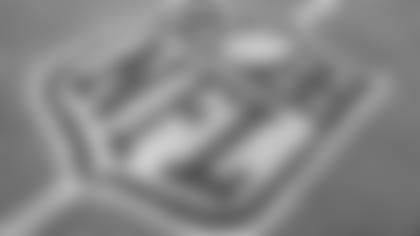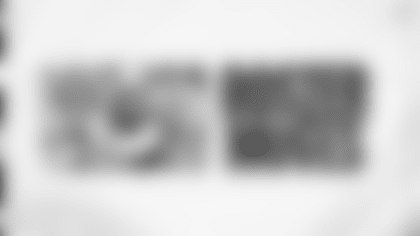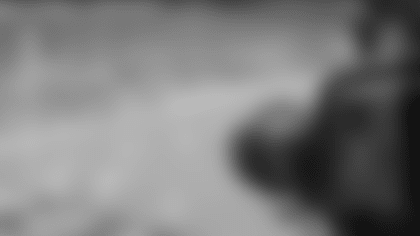[wysifield-embeddedaudio|eid="584536"|type="embeddedaudio"|view_mode="full"]
Q: How would you describe what Julian Edelman has meant to this team?
BB: Yeah, Julian is a great competitor, works hard, is tough, does all of the things that you ask him to do. I feel badly for him, of course.
Q: How fast do you move on as a staff from the emotion of the loss of a player for the season and refocus on replacing the production you expected from that player?
BB: Well, yeah, we feel badly for Julian and hope that he will have a speedy and complete recovery. But yeah, the team will have to move on and we'll have to compete in this season without him. It's unfortunate but that's the way it is, so we'll have to figure that out.
Q: Does seeing a key player like Julian Edelman go down during a preseason game change the way that you feel about preseason games as a whole?
BB: No. I feel badly for Julian.
Q: What have you seen out of D.J. Foster the past few weeks?
BB: Yeah, he played a lot last night, got some carries. The week before against Houston he caught a couple of passes. He's a guy that was a little bit of a specialty player in college, played in the backfield, played in the slot, was moved around some so we're just trying to give him as much of an opportunity as we feel like he's earned, or we can to let him play in a more traditional type of offense like we have. I mean not traditional, but the roles are a little clearer than maybe what they were in college for him. Again, these games are a good opportunity, have been good opportunities for him and I'm sure he'll get an opportunity to continue to perform next week against the Giants.
Q: What led to you guys choosing to release Kony Ealy?
BB: Yeah, I do think he was making progress and getting better and was really working hard. It's just one of those things that didn't work out or wasn't going to work out. It's nobody's fault. He worked hard. We worked hard. There was a lot of effort put in, but in the end we didn't feel like this was going to work out. It gives him an opportunity about a week ahead of next week to hopefully create a better opportunity for himself. I think he deserved that. He did everything we asked him to do. It just didn't work out for either one of us like we hoped it would.
Q: What did you see from Mike Gillislee last night and the work he did with fullback James Develin?
BB: Well, we were able to get Mike a few carries and a few plays in the game. I think he still has quite a ways to go. He has missed some practices this fall and missed some practices last spring. He works hard to stay on top of things and to stay caught up and we've worked hard to catch him up, but he still has some ground to make up. We gained some on it. We gained some ground last week or yesterday. He'll have an opportunity to play against the Giants. We'll continue to keep pushing through it.
Q: How much of a charge is Adam Butler making here in the preseason? It looked like he made some plays early in the game last night.
BB: Adam's had a strong camp. We talked about it the other day. He's played in a number of different spots, which he did last night. He played on the center, on the guard, on the tackle, even on the tight end for a couple of snaps. [He has] a long way to go, got a lot to learn but he's a grinder. He comes to work every day and tries to work to get better on the things that he needs to work on. He's been a tough, consistent guy that's shown up and continued to get better.
Q: We saw Malcolm Butler be aggressive last night punching the ball loose from a receiver to create a turnover. Is that something he works on in practice?
BB: We work on those turnovers with all of our players. Different drills because they play different positions and probably get different opportunities, but right, we work on all of those drills. Malcolm's very aggressive. He has quick hands. He had a couple of those plays last year where he punched the ball out or punched it out after a catch. He does have a knack for it and he's got quick hands and he's able to get it out. He's always had a – really since he's been here, even going back to when he first got here in the minicamps in the spring of '14 – kind of a nose for the ball, has an instinctiveness for getting the ball whether it's tipped balls, an interception, or a strip or whatever it is. He's around the ball, finds it, has the knack for making those plays. He sure does.
Q: How did Ray Perkins, who coached both in New England and with the Giants, help shape both organizations in your eyes?
BB: Well, on a personal level, Ray had a huge influence on my life and my career. When I went to the Giants in 1979, Ray hired me as the special teams coach. That was really a tremendous opportunity for me and a break in my career at a pretty young age – 27 – to have an opportunity to coach the special teams unit and have the responsibility for coaching players. I did that some in Detroit but the special teams was a bigger responsibility so it was a great opportunity for me. Ray, obviously, played under Coach [Bear] Bryant and Coach [Don] Shula – those great Colts teams and that Alabama team. He had a very tough, hard-nosed mentality and as a receiver he brought that mentality to coaching. Of course he was very good and knowledgeable about the passing game but he was a tough coach. The receivers blocked. He conditioned the team hard. He practiced hard. He coached the team like he played and he was a real grinder as a player and everybody always remarked about his toughness and competitiveness as a player, and I think that came across in his coaching and he instilled that in his staff and in his players. So it was great for me to work under him. He had, again, a huge influence in my career, not just for giving me the opportunity but I learned a lot from Coach Perkins and he was very supportive of me in the kicking game to give me the time and the ability to use the players that he felt would make a difference in the game. We used a lot of starters on special teams when I was the coach there, players like Lawrence Taylor and so forth. They had a big impact on the game in the kicking game and Coach Perkins was behind that, so that was a great opportunity for me, as well. I learned a lot about managing a team and handling a team in those four years that I was with him. He was here for a short period of time and then went to San Diego. He was here with Ernie Adams, so between Ernie's connections and Ray's connections to the Patriots – the Giants and then back to the Patriots in Ernie's case, and Ray's case because Ray was here in '96 when I was here – there was an opportunity. He's had a strong influence on both organizations and then helped develop a lot of the coaches that had come up through those systems. Ron [Erhardt] – kind of the same thing. I was in New York when Ron came. He was still the head coach at the Patriots when Coach [Bill] Parcells came down in '81 and then Bill brought Ron down a couple of years later. So there was obviously a strong connection there. I mean all of the terminology that we use today and the terminology that we used at the Giants, which I would imagine the Giants still probably have a big foundation on that because of Coach [Tom] Coughlin, it all came from Coach [Chuck] Fairbanks and Coach Perkins, Coach Erhardt, Coach [Hank] Bullough, whether it's on the offensive side of the ball or the defensive side of the ball. With Coach Fairbanks it was all kind of the same, so as those coaches went to other organizations in leadership positions in the team and the league, like Coach Perkins did, or Coach Erhardt did, and Coach Parcells did, then that nomenclature, terminology and some of the systematic things that were done under Fairbanks at New England traveled with those coaches. As we've come back in New England, Charlies [Weis] and myself, people like that, even Ernie and the scouting system – that was all developed under Fairbanks and Bucko [Kilroy] and so forth even though it kind of – I don't know if it ever really left here – as we and people who grew up in that system and learned it came back, if we needed to change things we probably changed them back, or if they were already in place then we just left them in place, so again, the foundation of those teams, the late 70's through the early 80's – I shouldn't say early – the late 70s all of the way to today is in a way, it's fundamentally from a terminology base and, again, a lot of the systematic things that are done are probably very similar. That's a great question. I haven't gotten that one in a long time; great question. There's a tremendous connection between those two organizations from the people that have traveled back and forth and who they've brought with them, as well.
Q: How fast do the players and the coaching staff move on when players get injured or released?
BB: Well, there's a personal side. I mean, you never move on. Julian will be here on a regular basis doing his rehabilitation and so forth. So you never really move on from that standpoint. A player that's released, that's a little different situation. But this team has to move forward with the resources that we have, and unfortunately we've lost one and an important one, but as a team we still have to move forward and that's what we'll do. I guess that process has already started.





































